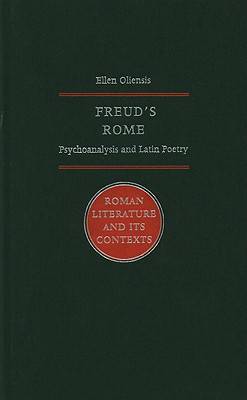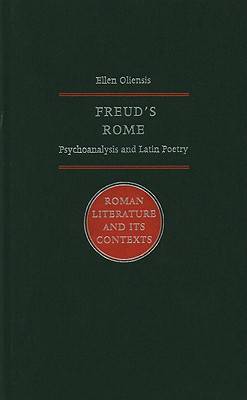
- Afhalen na 1 uur in een winkel met voorraad
- Gratis thuislevering in België vanaf € 30
- Ruim aanbod met 7 miljoen producten
- Afhalen na 1 uur in een winkel met voorraad
- Gratis thuislevering in België vanaf € 30
- Ruim aanbod met 7 miljoen producten
Zoeken
Omschrijving
This book is a meditation on the role of psychoanalysis within Latin literary studies. Neither a sceptic nor a true believer, Oliensis adopts a pragmatic approach to her subject, emphasizing what psychoanalytic theory has to contribute to interpretation. Drawing especially on Freud's work on dreams and slips, she spotlights textual phenomena that cannot be securely anchored in any intention or psyche but that nevertheless, or for that very reason, seem fraught with meaning; the 'textual unconscious' is her name for the indefinite place from which these phenomena erupt, or which they retroactively constitute, as a kind of 'unconsciousness-effect'. The discussion is organized around three key topics in psychoanalysis - mourning, motherhood, and the origins of sexual difference - and takes the poetry of Catullus, Virgil, and Ovid as its point of reference. A brief afterword considers Freud's own witting and unwitting engagement with the idea of Rome.
Specificaties
Betrokkenen
- Auteur(s):
- Uitgeverij:
Inhoud
- Aantal bladzijden:
- 148
- Taal:
- Engels
- Reeks:
Eigenschappen
- Productcode (EAN):
- 9780521846615
- Verschijningsdatum:
- 23/11/2009
- Uitvoering:
- Hardcover
- Formaat:
- Genaaid
- Afmetingen:
- 130 mm x 201 mm
- Gewicht:
- 272 g

Alleen bij Standaard Boekhandel
+ 178 punten op je klantenkaart van Standaard Boekhandel
Beoordelingen
We publiceren alleen reviews die voldoen aan de voorwaarden voor reviews. Bekijk onze voorwaarden voor reviews.











